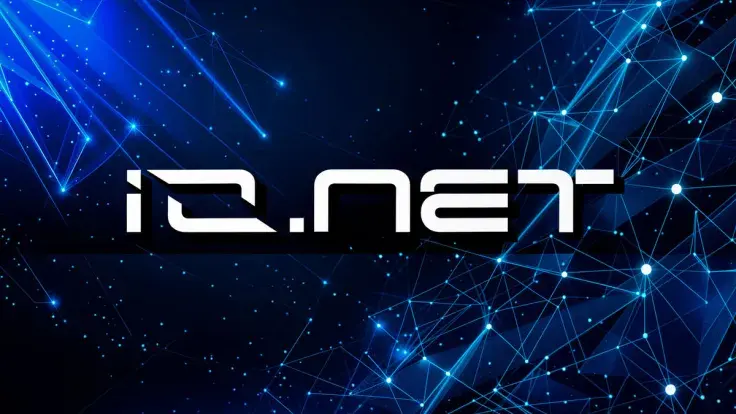
Disclaimer: The opinions expressed by our writers are their own and do not represent the views of U.Today. The financial and market information provided on U.Today is intended for informational purposes only. U.Today is not liable for any financial losses incurred while trading cryptocurrencies. Conduct your own research by contacting financial experts before making any investment decisions. We believe that all content is accurate as of the date of publication, but certain offers mentioned may no longer be available.
As AI evolves and the need for more computational power increases, the demands on digital infrastructure have never been greater. It’s becoming a serious problem, with Big Tech hoarding the best hardware and monopolizing the industry.
Enter DePIN, or decentralized physical infrastructure networks—a groundbreaking approach to tech infrastructure poised to revolutionize business operations.
From scalability and cost efficiency to enhanced resilience, DePIN offers a myriad of benefits that traditional centralized models simply can't match. One of the biggest players in this space, IO.net, agreed to chat about DePIN's advantages, highlight its benefits, and look at the future of this innovative technology.
The rise of DePIN: Tech and adoption aspects
At its core, DePIN leverages the power of distributed networks to create a more flexible, scalable, and resilient tech infrastructure.
Traditional centralized models rely on limited resources. DePIN taps into underutilized global assets, making high-performance infrastructure accessible to a broader range of users.
With growing demands for computational power, data storage, and seamless connectivity, traditional centralized models are struggling to keep up.
Tory Green, CEO of Io.net, highlights the bottlenecks of traditional tech systems in many use-cases:
Traditional centralized models are limited by high capital expenditures and global supply chain constraints, which slow down their ability to scale effectively
DePIN offers a viable alternative, ensuring that businesses can scale efficiently without compromising on performance or reliability.
The DePIN advantage: Making data logistics resource-efficient
One of DePIN's most compelling advantages is its unparalleled scalability. This tech uses underutilized global resources, creating a more flexible and scalable network.
For instance, IO.net aggregates GPUs from around the world, offering nearly unlimited compute capacity.
Cost Efficiency
Cost efficiency is another area where DePIN shines. By leveraging idle resources, DePIN significantly reduces infrastructure costs, making high-performance computing accessible to startups and smaller companies.
Traditional cloud providers come with hefty price tags, but DePIN models like iO.net offer a more affordable alternative without sacrificing performance.
Resilience
In terms of resilience, DePIN outperforms traditional models by eliminating single points of failure.
Green said, “It’s not just about cost. Users also gain the advantage of superior performance and flexibility. With decentralized nodes distributed across the globe, tasks like AI model training and inference can be performed with lower latency, improving overall efficiency.”
Decentralized networks distribute workloads across multiple nodes, reducing the risk of downtime and censorship. This ensures continuous, reliable service—a critical factor for businesses that depend on uninterrupted operations.
How can users benefit from working with DePIN?
The benefits of IO.net's decentralized network are manifold for users. Access to affordable, scalable compute power is a game-changer, especially for smaller companies and startups.
Traditional cloud providers often come with high costs and limited scalability, but IO.net offers substantial cost savings and nearly unlimited compute capacity.
Ultimately, users get more compute power for less, with added flexibility and reliability—allowing them to focus on innovation rather than infrastructure,” added Green.
Superior Performance
Performance and flexibility are key advantages for any business. With decentralized nodes distributed worldwide, tasks like AI model training and inferencing can be performed with lower latency, improving overall efficiency. The company’s global reach gives users a superior performance experience regardless of location.
“We’ve successfully leveraged decentralized networks to aggregate GPU resources from across the globe, providing the compute power necessary for AI training, machine learning, and inferencing,” confirmed Green.
DePIN represents the future of tech infrastructure
The anticipated growth of DePIN will have a huge impact on various industries.
Startups and smaller companies stand to benefit the most, as DePIN levels the playing field by providing access to high-performance infrastructure at affordable rates. The democratization of resources promotes innovation and encourages the development of new tech.
Making advanced infrastructure accessible to a broader audience enables businesses to experiment with new ideas and technologies without the burden of high costs.
In fields like AI and ML, access to compute power can make or break a project, so DePIN could play an increasingly important role for new companies looking to enter the space.
The emergence of DePIN as a transformative force in tech infrastructure marks a significant shift from traditional centralized models. It addresses the growing computational and connectivity demands that traditional models cannot meet by optimizing underutilized resources and providing cost-effective, scalable, and resilient solutions.
Companies like IO.net are at the forefront of this innovation, offering nearly unlimited compute capacity and superior performance. DePIN is a promising solution that democratizes access to high-performance infrastructure, particularly benefitting startups and smaller enterprises.
Its potential to revolutionize industries by enabling innovation without the burden of exorbitant infrastructure costs highlights DePIN as the infrastructure of tomorrow, paving the way for a more connected and efficient technological future.
 Vladislav Sopov
Vladislav Sopov Dan Burgin
Dan Burgin